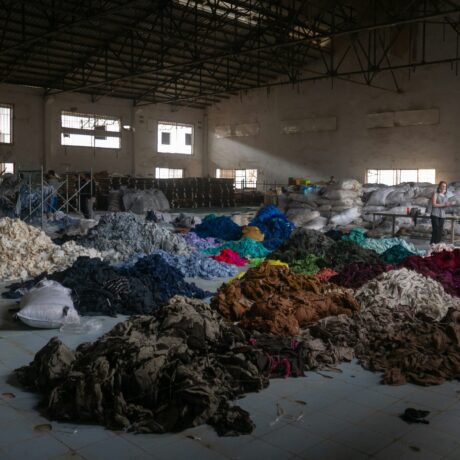Turning the Tide: Ghana’s Battle Against Fast Fashion Pollution
Ghana, a country rich in natural beauty and abundant resources, is confronting a pressing crisis resulting from the surge of discarded clothing from the global North. This influx has given rise to significant environmental and social challenges. In response to this issue, climate activist Yvette Yaa Konadu Tetteh, with the backing of The Or Foundation, has taken action. They’ve launched ‘The Agbetsi Living Water Swim for Science Expedition‘ as part of an environmental campaign aimed at researching the impact of textile pollution on Ghana’s water bodies. Yvette embarked on a remarkable 40-day swim, covering a distance of approximately 450 kilometers across the Volta River. Her goal was to draw attention to the relatively pristine condition of this crucial waterway in Ghana, a stark contrast to the heavily polluted Korle Lagoon, which suffers severe consequences from textile waste.
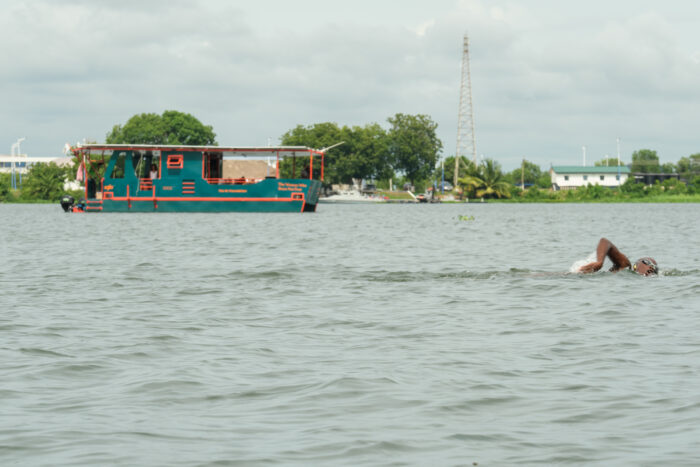
In recent years, Ghana has experienced a consistent influx of discarded clothing from various countries, including the UK, US, and China. Commonly known as “obroni wawu” or “dead white man’s clothes,” these donated clothing are sold to exporters and importers who, in turn, distribute them to vendors in bustling markets like Kantamanto in Accra. Kantamanto stands as one of the world’s largest second hand clothing markets, where these items find new homes.
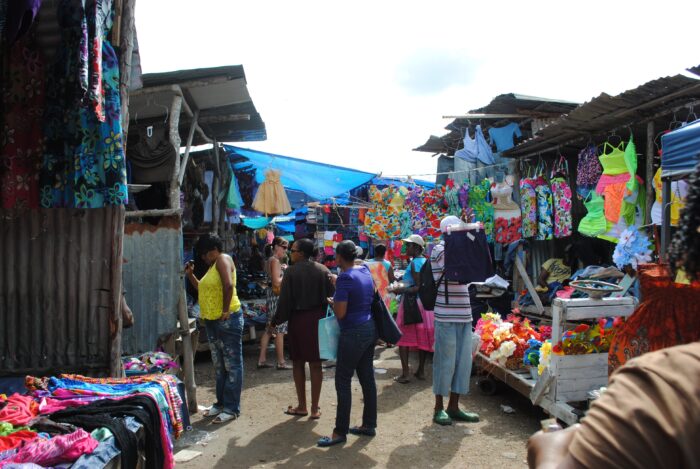
While this practice might have once offered affordable and accessible clothing options, the rise of fast fashion has profoundly transformed the landscape of these imports. The growing demand for cheap and disposable clothing has resulted in a decline in overall garment quality, culminating in an alarming surge of pollution in our seas and waterways. The textiles in question, often crafted from synthetic materials, take hundreds of years to break down. This is hurting the environment and the balance of Ghana’s ecosystems.
The Volta Lake serves as a crucial resource for local communities, offering freshwater, sustenance, and recreational options. The lake’s condition is intimately tied to the welfare of numerous Ghanaians, although it currently remains unthreatened. Samples taken from the Volta River will be compared to those obtained from the Korle Lagoon, which, despite once being suitable for swimming, has now become one of the most polluted water bodies on the planet.
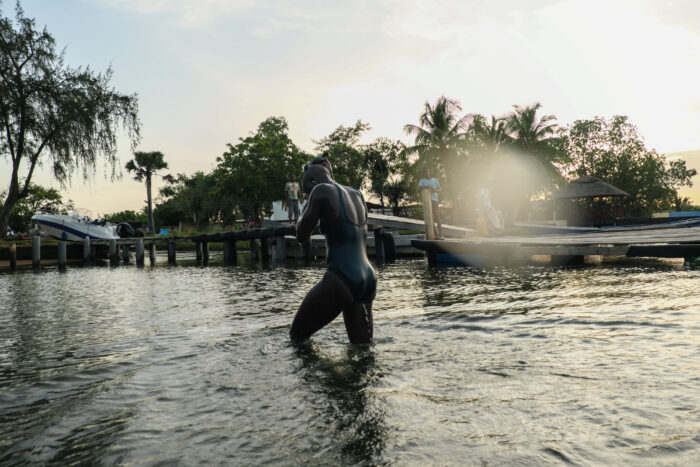
During her swim, Yvette Yaa Konadu Tetteh collected air and water samples with the purpose of assessing pollution levels caused by textile waste and the fast fashion industry. These results will be important evidence, highlighting the pressing need to adopt fair and sustainable fashion practices while the country awaits the findings of the investigation into the impact of fast fashion waste. Armed with this scientific data, policymakers, industries, and communities can make informed decisions to protect Ghana’s water resources and preserve its natural heritage for future generations.
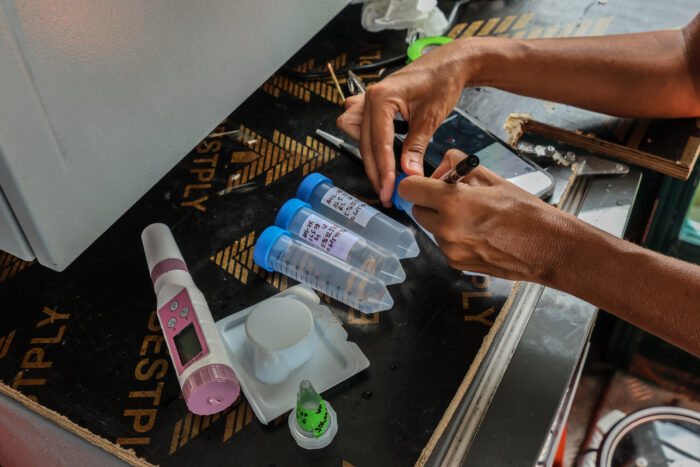
Encouraging responsible consumption, recycling, and ethical production will be crucial in protecting the environment and securing a sustainable future for everyone. The future of Volta’s water has the potential to reflect the future that we deliberately shape.
Further resources
Photography credit – Ofoe Amegavie Courtesy of The Or Foundation






